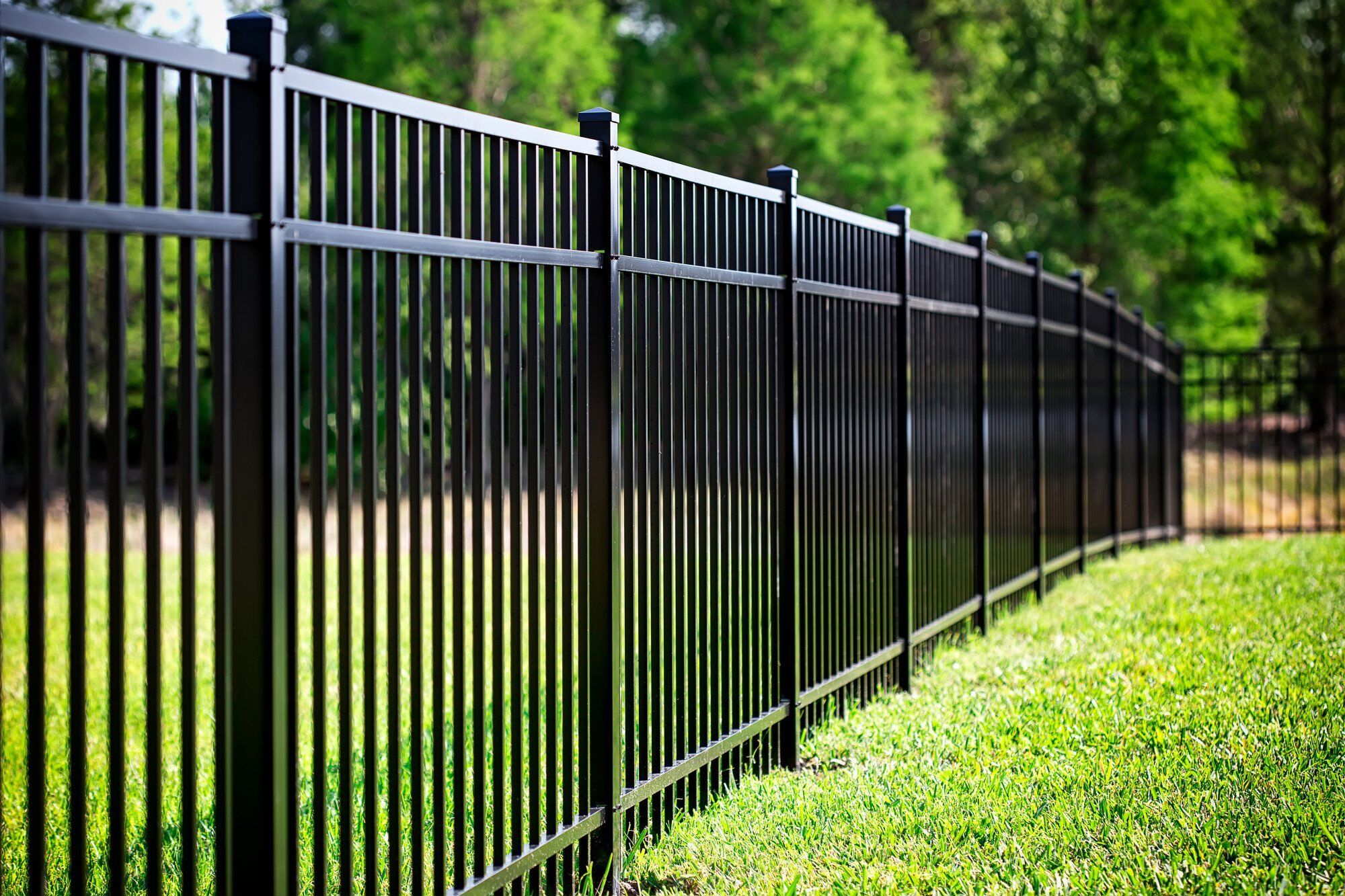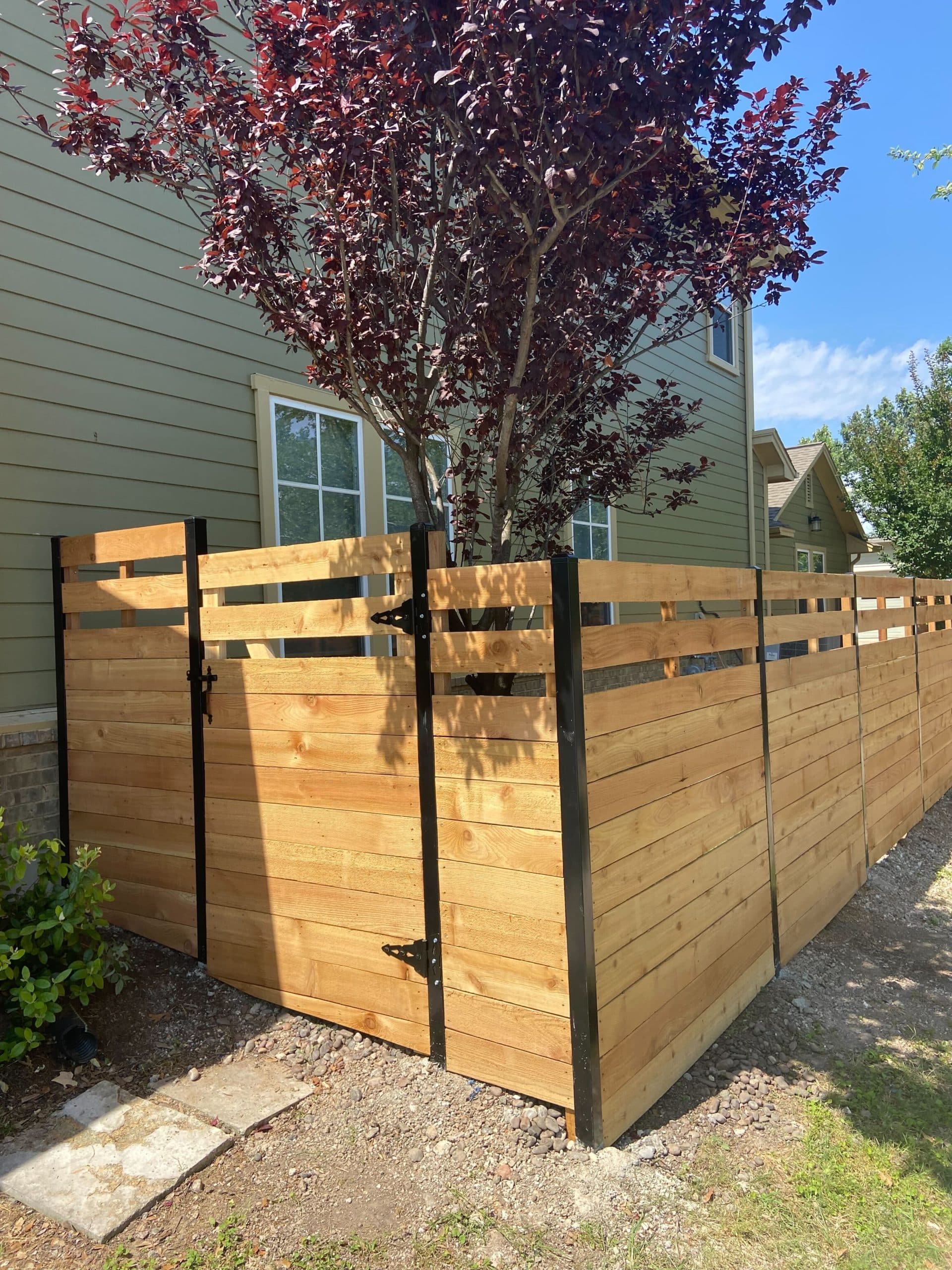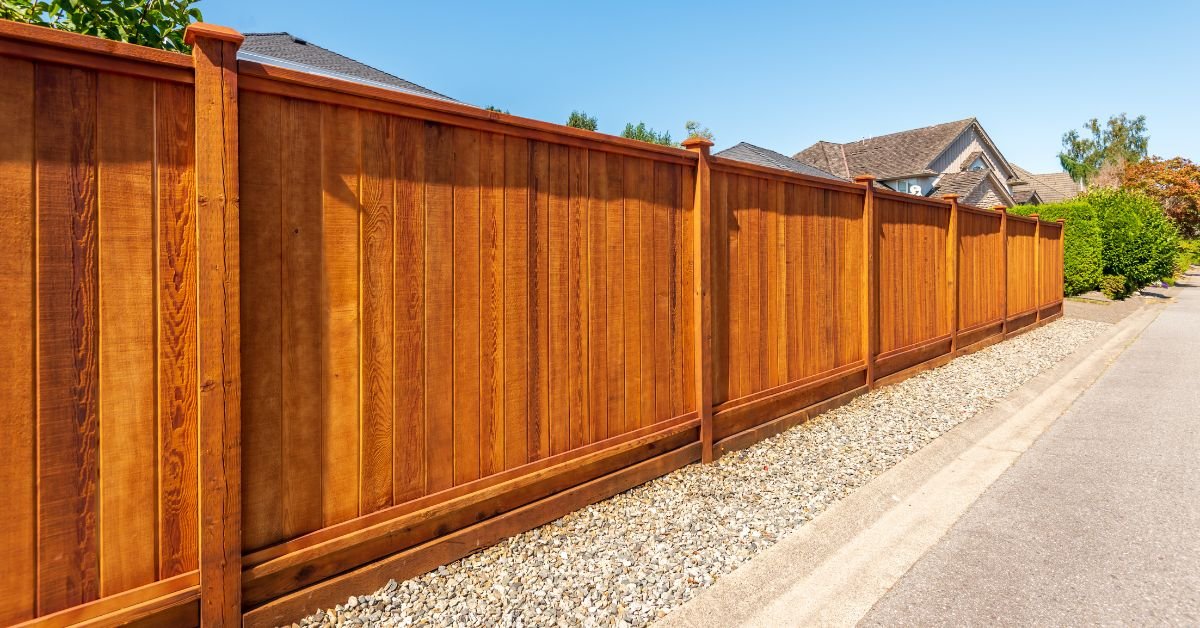All Categories
Featured
Picking the appropriate sort of fence for your home is a choice that needs thoughtful consideration of a number of factors, from the material and style to its purpose and upkeep needs. A fence not just offers functional features such as protection and privacy but can likewise enhance the visual charm of your home. With a range of materials offered, it's vital to recognize what jobs best for your certain demands.
![]()
Privacy: If your goal is to block out the view from passersby or neighbors, you'll want a solid fence with no voids. Products like wood, plastic, and composite are preferred options for personal privacy fencings. They supply the required coverage to ensure a secluded lawn or garden space. Safety: For keeping intruders out or safeguarding youngsters and animals, you'll need a strong, tall fence. Steel fencings such as chain, steel, or aluminum web link deal great toughness and are difficult to climb. These products are additionally suitable for creating a protected perimeter around your residential property. Visual Appeal: If the function of your fence is more decorative than useful, you could choose a picket fence, functioned iron, or a split rail fence. These choices give an appealing border without using complete personal privacy. 2. Consider Your Budget. Your spending plan will certainly play a critical function in your decision. Various materials included varying rate factors, so it is very important to think about just how much you're ready to spend. Right here are some basic guidelines:
Timber Secure Fencing: One of one of the most cost-effective choices, timber fencings can be customized and installed conveniently, though they call for maintenance to avoid rot and warping. Routine discoloration or paint is necessary to preserve its appearance and toughness. Vinyl Secure fencing: While vinyl is extra costly in advance than wood, it's a low-maintenance option. Plastic fences do not need paint, discoloration, or sealing, and they are resistant to degeneration, fading, and bugs. Nonetheless, they can be susceptible to fracturing in extreme cold temperatures. Chain Link Secure Fencing: If your main top priority is maintaining costs low, chain link fences are one of the most cost effective option. While they do not provide much in terms of privacy, they're practical for noting and securing animals building limits. Steel Fence (Aluminum or Steel): Metal fencings are sturdy, durable, and essentially maintenance-free. While they can be costlier than timber or chain link, they use included safety and a sleek, modern appearance. 3. Longevity and Upkeep Requirements. Think of the lasting toughness of your fencing and just how much time and initiative you agree to invest in maintenance:
![]()
Timber: While timber uses an all-natural appearance, it calls for routine maintenance, including discoloring and sealing, to secure it from the aspects. Timber fencings can last 10-15 years with correct upkeep. Vinyl: Vinyl fences are low-maintenance and are very resilient. They won't rot, warp, or discolor with time. Once mounted, you can anticipate a plastic fencing to last for a number of years with minimal care. Metal: Aluminum and steel fencings are very durable and call for little to no upkeep. Light weight aluminum will not rust, and steel can be treated with a protective covering to protect against rust. Both choices can withstand extreme weather and are ideal for lasting usage. Chain Link: Although chain link fencings are durable and resilient, they might require routine repairs, especially if the galvanized finishing starts to use off. They can rust with time, though modern-day layers like vinyl are readily available to expand the life expectancy. 4. Variable in Aesthetic Appeal. The design and style of the fence need to match the architecture of your residential or commercial property. Take into consideration the overall visual you intend to achieve:
Typical Houses: For more timeless, standard residential or commercial properties, a timber or functioned iron fence may be the ideal fit. These materials supply an ageless appeal and can be customized to match the design of your home. Modern or Contemporary Homes: If you have a modern-day home, you may intend to pick sleek, minimalistic products like aluminum or plastic. These fences give a tidy appearance and can be personalized with different shades or surfaces. Farm or Country Settings: For larger residential properties or rural settings, split-rail or ranch-style fencings can give an authentic appearance and are appropriate for defining residential or commercial property boundaries while still permitting an open view. 5. Climate Factors to consider. The climate in your area plays an essential function in establishing the very best material for your fence. Wood may warp or rot unless treated appropriately if you live in an area with high humidity or hefty rains. Vinyl and metal alternatives, nonetheless, carry out well in a lot of climates and are less prone to damage created by wetness.
![]()
Conclusion. Picking the appropriate fencing for your residential or commercial property depends on comprehending your demands, spending plan, and personal choices. Whether you're prioritizing personal privacy, safety and security, looks, or reduced maintenance, there is a wide variety of choices available. By considering the product, longevity, and design of your fence, you can make sure that it improves the feature and appearance of your home for many years to find.

- Analyze the Objective of the Fence. The very first step in choosing the perfect fence is comprehending its main function. The sort of fence you select will rely on what you intend to achieve:
Privacy: If your goal is to block out the view from passersby or neighbors, you'll want a solid fence with no voids. Products like wood, plastic, and composite are preferred options for personal privacy fencings. They supply the required coverage to ensure a secluded lawn or garden space. Safety: For keeping intruders out or safeguarding youngsters and animals, you'll need a strong, tall fence. Steel fencings such as chain, steel, or aluminum web link deal great toughness and are difficult to climb. These products are additionally suitable for creating a protected perimeter around your residential property. Visual Appeal: If the function of your fence is more decorative than useful, you could choose a picket fence, functioned iron, or a split rail fence. These choices give an appealing border without using complete personal privacy. 2. Consider Your Budget. Your spending plan will certainly play a critical function in your decision. Various materials included varying rate factors, so it is very important to think about just how much you're ready to spend. Right here are some basic guidelines:
Timber Secure Fencing: One of one of the most cost-effective choices, timber fencings can be customized and installed conveniently, though they call for maintenance to avoid rot and warping. Routine discoloration or paint is necessary to preserve its appearance and toughness. Vinyl Secure fencing: While vinyl is extra costly in advance than wood, it's a low-maintenance option. Plastic fences do not need paint, discoloration, or sealing, and they are resistant to degeneration, fading, and bugs. Nonetheless, they can be susceptible to fracturing in extreme cold temperatures. Chain Link Secure Fencing: If your main top priority is maintaining costs low, chain link fences are one of the most cost effective option. While they do not provide much in terms of privacy, they're practical for noting and securing animals building limits. Steel Fence (Aluminum or Steel): Metal fencings are sturdy, durable, and essentially maintenance-free. While they can be costlier than timber or chain link, they use included safety and a sleek, modern appearance. 3. Longevity and Upkeep Requirements. Think of the lasting toughness of your fencing and just how much time and initiative you agree to invest in maintenance:

Timber: While timber uses an all-natural appearance, it calls for routine maintenance, including discoloring and sealing, to secure it from the aspects. Timber fencings can last 10-15 years with correct upkeep. Vinyl: Vinyl fences are low-maintenance and are very resilient. They won't rot, warp, or discolor with time. Once mounted, you can anticipate a plastic fencing to last for a number of years with minimal care. Metal: Aluminum and steel fencings are very durable and call for little to no upkeep. Light weight aluminum will not rust, and steel can be treated with a protective covering to protect against rust. Both choices can withstand extreme weather and are ideal for lasting usage. Chain Link: Although chain link fencings are durable and resilient, they might require routine repairs, especially if the galvanized finishing starts to use off. They can rust with time, though modern-day layers like vinyl are readily available to expand the life expectancy. 4. Variable in Aesthetic Appeal. The design and style of the fence need to match the architecture of your residential or commercial property. Take into consideration the overall visual you intend to achieve:
Typical Houses: For more timeless, standard residential or commercial properties, a timber or functioned iron fence may be the ideal fit. These materials supply an ageless appeal and can be customized to match the design of your home. Modern or Contemporary Homes: If you have a modern-day home, you may intend to pick sleek, minimalistic products like aluminum or plastic. These fences give a tidy appearance and can be personalized with different shades or surfaces. Farm or Country Settings: For larger residential properties or rural settings, split-rail or ranch-style fencings can give an authentic appearance and are appropriate for defining residential or commercial property boundaries while still permitting an open view. 5. Climate Factors to consider. The climate in your area plays an essential function in establishing the very best material for your fence. Wood may warp or rot unless treated appropriately if you live in an area with high humidity or hefty rains. Vinyl and metal alternatives, nonetheless, carry out well in a lot of climates and are less prone to damage created by wetness.

- Local Laws and HOA Standards. Prior to completing your fencing selection, make certain to talk to your local town or property owners association (HOA) for any type of constraints regarding fence elevation, materials, or design. Several locations have details guidelines in area, and it is very important to abide to avoid prospective penalties or having to tear down the fence.
Conclusion. Picking the appropriate fencing for your residential or commercial property depends on comprehending your demands, spending plan, and personal choices. Whether you're prioritizing personal privacy, safety and security, looks, or reduced maintenance, there is a wide variety of choices available. By considering the product, longevity, and design of your fence, you can make sure that it improves the feature and appearance of your home for many years to find.
Latest Posts
Celebrate Extraordinary Birthdays at FunCity Hotel
Published Apr 20, 25
1 min read
NAPA AutoCare Certified: Trust Montclare Auto Repair for Quality Service
Published Apr 19, 25
2 min read
Full Circle Strategic Marketing - Supercharge Your Marketing Efforts with Tailored Strategies
Published Apr 19, 25
2 min read
More
Latest Posts
Celebrate Extraordinary Birthdays at FunCity Hotel
Published Apr 20, 25
1 min read
NAPA AutoCare Certified: Trust Montclare Auto Repair for Quality Service
Published Apr 19, 25
2 min read
Full Circle Strategic Marketing - Supercharge Your Marketing Efforts with Tailored Strategies
Published Apr 19, 25
2 min read